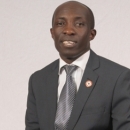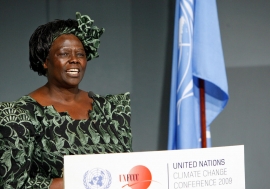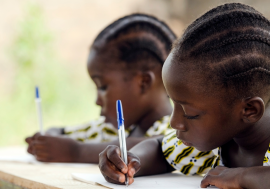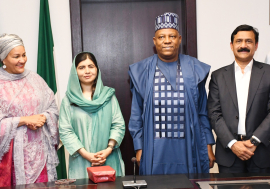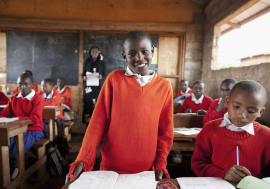Ruth Rono graduated from Chuka University in Kenya in 2015 with first-class honours. After trying in vain to get a job for many years, she was forced to take menial jobs. At some point, she took to working on people’s farms.
Down south, Banji Robert bagged a bachelor’s degree in economics and mathematics from the University of Zambia in 2016. Two years later, a frustrated Mr. Robert is now a cashier in a grocery store.
“It is not easy to pay bills, let alone start a family,” Mr. Robert, 25, told Africa Renewal. “The pressure is too much when you have education but no job.”
Life is not much different for Robert Sunday Ayo, 26, a Nigerian graduate of development studies. “It is sad and very frustrating that I cannot find work, even with my kind of résumé,” he says regretfully, adding that he now drives a taxi in Abuja.
With little to no social protection, many young Africans are ready to take the least paying jobs.
About 10 -12 million young Africans enter the labour market each year where only 3 million formal jobs are available, according to the African Development Bank (AfDB). And the COVID-19 pandemic has worsened youth unemployment, as indicated in the African Union’s Africa Youth Lead policy paper 2020.
The International Labour Organization (ILO) 2022 report on global employment trends for youth found that “over one in five African youth were not in employment, education or training in 2020.”
Outdated curricula
Ahead of the Transforming Education Summit in September 2022, UN Secretary-General António Guterres said that “Outdated curricula, outdated teacher training, and outdated teaching methods leave students without the skills to navigate today’s fast-changing world.”
Stressing that providing inclusive and equitable quality education is key to achieving SDG 4, Mr. Guterres added that “Any country that is not actively conducting a root and branch overhaul of their education systems today risks being left behind tomorrow.”
The question is, are African countries preparing their youths for the jobs of the future?
“Far too many youths across sub-Saharan Africa emerge from school without the basic skills to advance in their lives,” says Siddharth Chatterjee, a former United Nations Resident Coordinator in Kenya, and now in China.
Any country that is not actively conducting a root and branch overhaul of their education systems today risks being left behind tomorrow.
Chido Cleopatra Mpemba, the African Union Youth Envoy, also blames youth unemployment on the continent on outdated curricula, highlighting their mismatch with the skills needed for the current labour market.
Kenya began to tackle such a mismatch in 2017 when it launched a competency-based curriculum, which integrates digital technologies.
Countries need to develop “more theoretical courses [that are] adapted to problem-solving, to provide graduates with practical skills for the labour market," says Anne-Elvire Esmel of AfroChampions Initiative, an organization that promotes African companies.
Ms. Esmel says that sectors such as construction, manufacturing, digital economy, transport, banking, medical care and engineering continue to need skilled but unavailable workers.
The recently launched African Continental Free Trade Area (AfCFTA), which is expected to boost industrialization on the continent, potentially offers enormous opportunities for skilled workers.
“The AfCFTA will create opportunities for better labour mobility across the continent,” elaborates Ms. Mpemba. “It is important to nurture the talents of young people and ensure they have the right skills to seize the opportunity.”
- In sub-Saharan Africa, nearly 87% of children are learning poor, unable to read and understand a simple text by the age of 10.
- 17 million additional teachers are needed to achieve universal primary and secondary education by 2030
- On average, the percentage of young people between 15 and 24 years old who are enrolled in vocational education is 3%
- The proportion of primary school-age children who are not in school was halved from 35% to 17% between 2000 and 2019.
- In 2020, 3 out of 5 Africans are under the age of 25. By 2050 it will be 1 out of 2 Africans in this age group
Source: UNICEF and African Union Commission (2021)
Teachers
In addition to making education curricula more in tune with current labour market needs, preparing the youth for jobs of the future requires well-trained and motivated teachers.
“There is no curriculum that adequately addresses the labour market because skills required are a moving target, says Dr. Alex Awiti, a policy specialist based in Kenya. “A change of curriculum must be accompanied by well-trained teachers.”
He argues that “Teachers are the most important actors in the curriculum implementation process.”
Therefore, says Dr. Awiti, a need exists to enhance “teachers’ competencies in the short and long term.”
“We are still teaching out of the past,” laments Ms. Mpemba, stressing that paying teachers good wages and investing in the right education infrastructure will help turn around the education sector.
Financing education
Financing quality education for all is still far from guaranteed across the world, particularly in Africa.
Nevertheless, almost half of all countries on the continent are meeting both the recommended education financing targets set by the United Nations, which are 4 per cent or more of GDP and 15 per cent or more of national budgets. African governments currently spend approximately 5 per cent of their GDPs on education.
The Education Finance Watch (EFW) 2022 report, a collaborative effort between the World Bank, the Global Education Monitoring (GEM) Report, and the UNESCO Institute of Statistics, states that Mozambique, Sierra Leonne, Cabo Verde, Morocco and Lesotho met or surpassed 6 per cent of GDP while Central Africa Republic, Guinea, Angola and Mauritania among others, spend less than 2.5 per cent of GDP on education.
This is despite the fact that “The share of education spending in total government expenditure fell in most regions with the onset of the pandemic.”
A concern, however, is that a high proportion of education spending in Africa (an average of 85 per cent) is recurrent, including 56 per cent that is expended on wages.
Also, such investments do not seem to significantly enhance school completion rates. In sub-Saharan Africa, for example, the completion rate of upper secondary education increased only 3.4 percentage points, from 23.3 per cent to 26.7 per cent, in the past decade, according to the 2021 World Population Prospects report released in 2022 because of the pandemic.
The AfCFTA will create opportunities for better labour mobility across the continent,” elaborates Ms. Mpemba. “It is important to nurture the talents of young people and ensure they have the right skills to seize the opportunity.
“African youth must be prepared for the jobs of the future”
Generally, the consensus is strong that education systems in Africa need transformation and that young Africans with the requisite skills are the ones to drive development on the continent.
The President of AfDB Akinwumi Adesina says African youth must be prepared for the jobs of the future: “From artificial intelligence to robotics, machine learning, quantum computing—Africa must invest more in re-directing and re-skilling its labour force, especially the youth.”
Ms. Mpemba also calls for more government support for youth innovations and funding for young entrepreneurs.
Other ideas for transforming education include accelerating e-learning through adequate financing, which the AU Youth Lead policy paper recommends and more investment in STEM [sciences, technology, engineering and mathematics].
“Over 75 per cent of the population of Africa is under the age of 35. More decisive actions are needed to turn this demographic asset into an economic dividend,” echoes Dr. Awiti.
The hope is that African leaders, policymakers, the youth, and others will return from the Transformation Education Summit with momentum and increased determination to implement strategies that will prepare young Africans for the jobs of the future.

